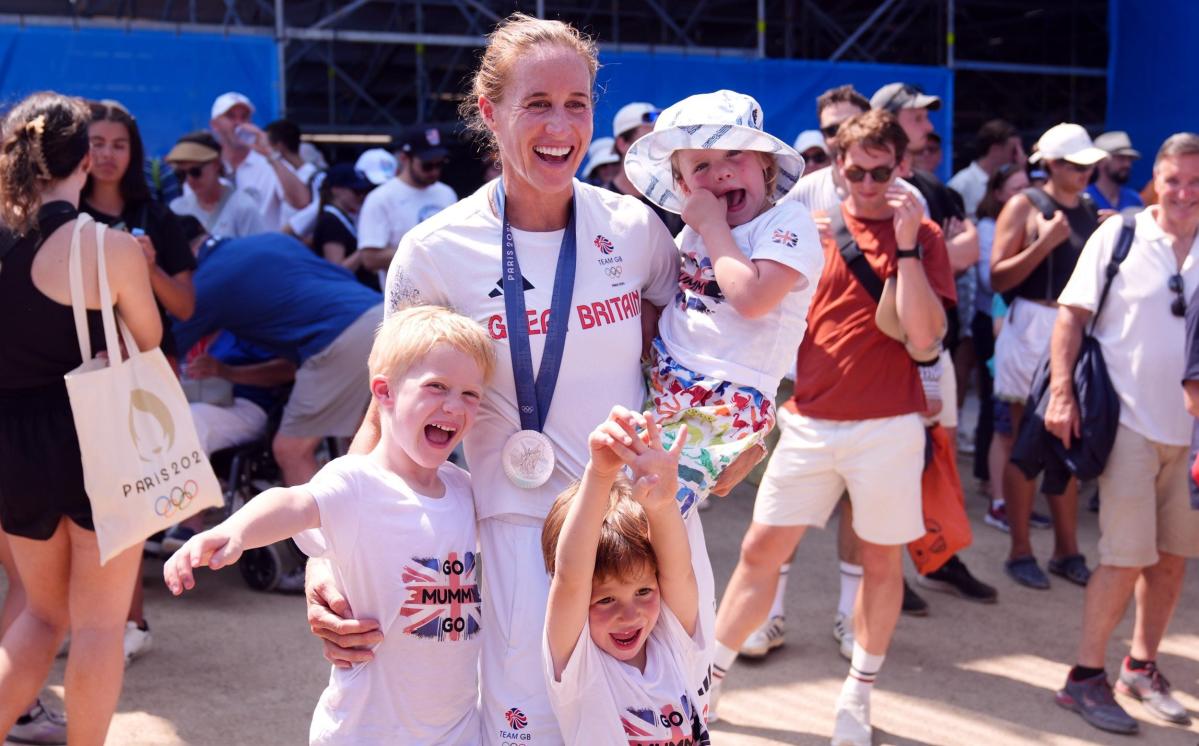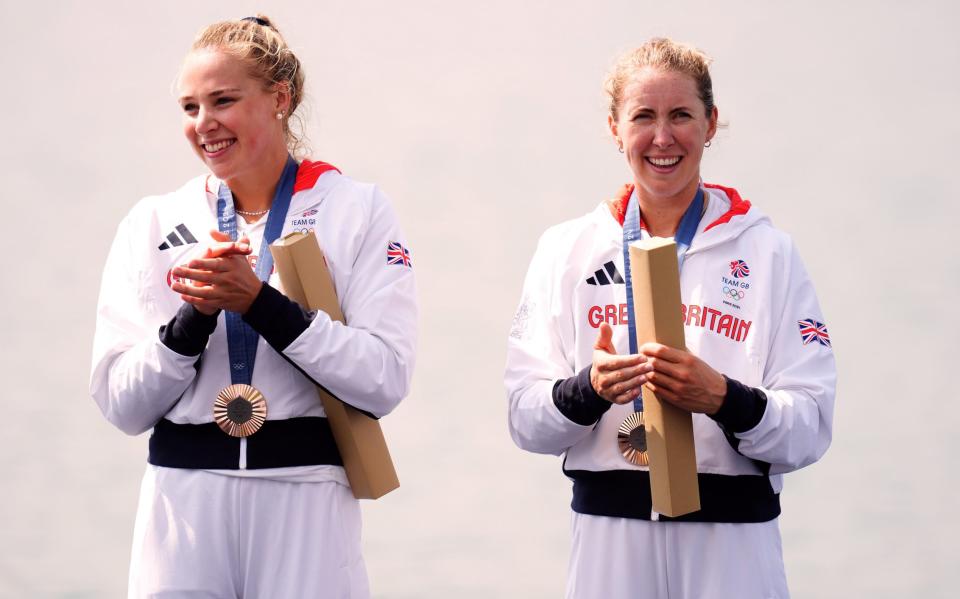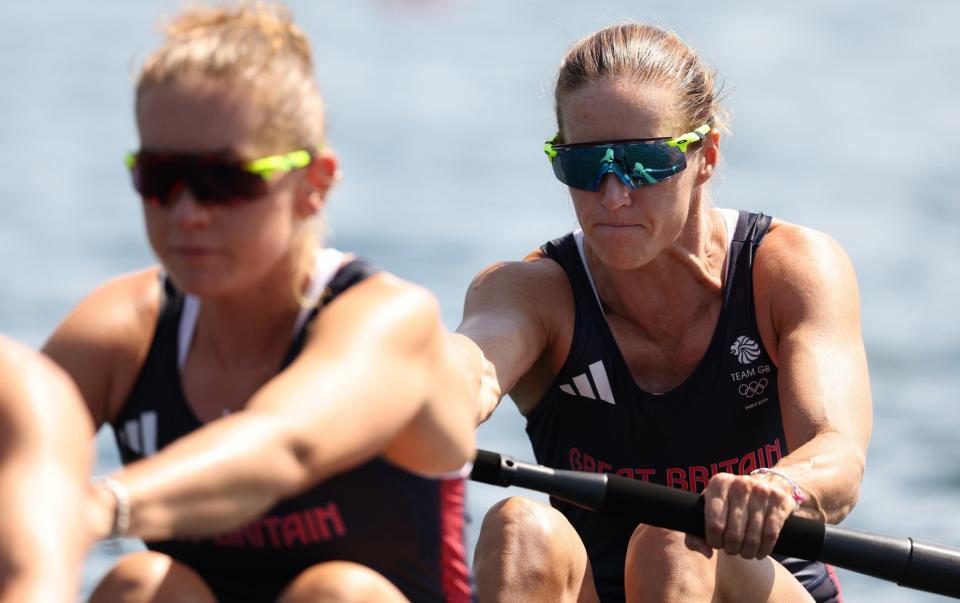Sports
Helen Glover calls on British Rowing to help mothers excel after medal success in Paris

As Great Britain celebrate their best haul at an overseas Olympic regatta, their most high-profile rower Helen Glover has called on her bosses to do even more for working mothers.
In Paris, Glover and Mathilda Hodgkins Byrne became the first British women to claim medals – a silver and a bronze respectively – in rowing after starting a family.
It was a fine achievement, but Glover told Telegraph Sport: “We can’t pat ourselves on the back too much. It has been happening for a long time in lots of other nations but we are a nation that historically has been pretty slow to react and change.
“With both Mathilda and I, you spend a lot of energy making it work, rather than just training and just rowing. What has actually changed on the ground is the fact that we know it can be done. Not the fact that we know exactly how to do it.
“So I would be very happy to work for British Rowing, making it possible for mums [to keep competing] in a really viable way, in a way that everybody understands, and a way that women feel supported. [We should try to] make it not just work for you, but make you excel as well.”


Thursday’s action at Vaires-sur-Marne showed beyond doubt that motherhood can coexist with Olympic rowing success. It wasn’t just about Glover’s silver in the women’s four, even though her story – which combines elite sporting performance with her daily commitment to five-year-old Logan and three-year-old twins Kit and Willow – has made her the most visible rowing mother of these Games.
No, the story had begun even earlier. In the first final of the day – the women’s double sculls – three of the six medallists were mothers: not only Hodgkins Byrne (whose son Frankie is two) but also the winning New Zealand crew of Brooke Francis and Lucy Spoors, who started their families in 2022.
“There’s maybe a slightly more relaxed feeling around it,” said Glover of rowing in New Zealand. “But then again British Rowing do so much right that it’s a fine balance. I would be so reluctant to step away from the probably more rigid structure that British Rowing has. It works, but then you always wonder, could it be better? How much more talent could we retain, not just mums but retiring athletes?”
Retention will certainly be an important issue for the sport in the coming weeks and months. Great Britain finished top of the rowing table in Rio but then saw a group of exceptional talents walk away from the sport, including Constantine Louloudis, George Nash and Paul Bennett.
This time around, there are numerous female medallists who will be considering their future, so it was encouraging to hear this week from Hodgkins Byrne. Speaking to Telegraph Sport, she explained that some of these women are already looking to follow her example.
“Ann Redgrave [the chief medical officer at British Rowing, whose husband Steve remains Britain’s most decorated rower] interviewed Helen and I on our experiences to find out how best they can develop their policy,” said Hodgkins Byrne.
“We’re obviously the best example they’ve got of people that have gone through it. They’re definitely of the opinion that if they can learn from us, and not have to go though the same teething issues again, they’ll try and do that. I think there’s quite a lot of people who are thinking about following us, which I think is fantastic.”
While Hodgkins Byrne and her rowing partner Rebecca Wilde are absolutely clear that they want to push on to Los Angeles in 2028, Glover says she has yet to make up her mind about the next Olympic cycle, having discovered from previous Games that the worst time to decide such questions is in the immediate aftermath of competition.


Whatever happens, though, she has discovered a cause that inspires her. “Whatever I do, I’ll keep carrying that flag for parents and what is possible,” she said. “You get a lot back because you immediately see the difference.
“From Tokyo to now, the landscape is quite different to what it was before, for women in sport. It continues to change really quickly, it doesn’t take decades, it actually takes really small moments that happen really quickly.
“It’s really amazing that before Rio, the conversation was always about how you would carry on or you would have a family. The two never mixed, even in terms of speculative conversation. And now we’re sat around tables with women on the team, and many of them are going ‘Yeah I might come back after I have a family’. Lots of people won’t but every single one of them should have the choice. So it’s really great to see that happening so quickly.”




